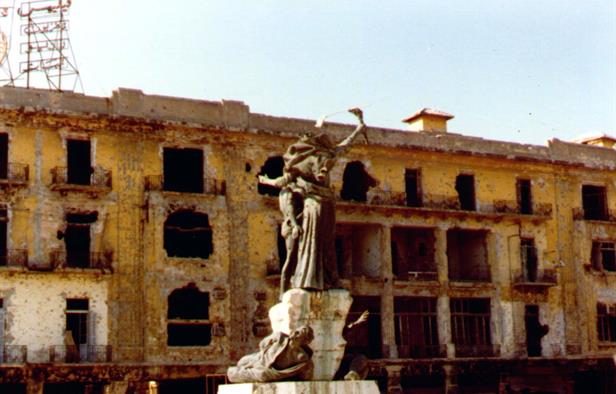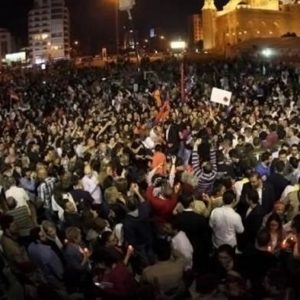“Study the past if you would define the future.” –Confucius
During my visit to Vienna in 2012, I was discussing Middle Eastern politics with some friends. The conversation then shifted to the history books of our respective countries; however, I became silent when it was my turn to talk about Lebanon’s history book. What was I supposed to say? That the history textbooks used in schools in Lebanon end with the withdrawal of the French troops in 1946? Or that the country does not have an accurate and unified history book that covers the country’s post-independence years? Normally, history textbooks are updated every 5-10 years, but not in Lebanon’s case.
Why should we care about having an unbiased and objective history book? And why is it so important?
I believe that one of the reasons Lebanon continues to commit the same historical mistakes is because we, the Lebanese, don’t know our history. We have no idea how international and regional powers turned Lebanon in to their personal battleground. For those of you who aren’t familiar with Lebanon’s history, the conflict of 1958 was much more than a crisis, and the conflict that began in 1975 was much more than a “sectarian war.” All these historical events were a result of the identity crisis that continues to plague the Lebanese state today.
Do you know the history behind Martyrs’ Square? Let me refresh your memory.
On May 6, 1916, for the first time in modern Lebanese history both Christian and Muslim intellectuals were executed publicly by Turkish authorities, for the same reason: for the independence and freedom of our nation, Lebanon. These intellectuals, whose names we don’t even remember, planted the roots of independence in our hearts.
During World War I, Lebanon paid a heavy price under Ottoman rule. Due to food shortages in the country, the arrival of a swarm of locusts, and the blockade of the Mediterranean coast that was initiated by Jamal Pasha— in an attempt to prevent his enemies from receiving supplies—Turkish authorities began to confiscate food from the local population. During this period, approximately 200,000 Lebanese people lost their lives. Consequently, intellectuals and nationalists revolted against Turkish rule. However, they were captured and publicly executed in the square for allegedly carrying out anti-Turkish activities.
From that day on, the site where the public executions were held became known as Martyrs’ Square.
But what about the rest of our history that isn’t mentioned in our history books? What about the 1958 Civil War? Thousands of Lebanese were killed during street clashes. What about President Fuad Chehab? Who did his best to preserve Lebanon’s institutions and constitution? What about the Civil War that started in 1975? What about the massacres in Damour, Sabra, and Shatila? What about the War of Elimination in 1988-89? What about the Taif Accord? Do we know how our institutions function? In my opinion, a nation without a memory is always doomed to repeat its own mistakes. Decades have passed and we can see how politicians are committing the same mistakes.
Novelist Michael Crichton said “If you don’t know history, then you don’t know anything. You are a leaf that doesn’t know it is part of a tree.” This quote makes me think about our roots and the identity crisis that our nation suffers from. Lebanese citizens need to ask themselves, where do they belong? Where does their loyalty lie? Are they loyal to the state? If so, which state? Can Lebanon be considered a legitimate a state?
All these questions can be answered in a concise and unbiased history book. What Lebanon is witnessing today shows us that we are going down a dark path, not because we want to, but because the younger generations haven’t experienced the pain of civil war. And unfortunately, they will never know about the pain and suffering of their country and its people, because of the Lebanese states’ failure to provide them with an accurate and concise history book. I believe the reason is that those who are in power do not want us to know the truth behind our bloody past. Fatal days are coming our way, so let us attempt to remember our past, so that we avoid making the same mistakes.
The article originally was published at NOWLebanon
Yeghia Tashjian holds a B.A. in political science from Haigazian University in Beirut, Lebanon. He is a Lebanese-Armenian political activist, researcher, blogger and the founder of the New Eastern Politics forum/blog. Currently, he is the regional officer of Women in War, a gender-based think tank and research assistant at Armenian Diaspora Research Center, Haigazian University, Beirut-Lebanon. You can follow the author on Twitter @yeghig.







